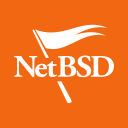Pine A64 (Single Page)

The PINE A64
The PINE A64 and the PINE A64+ is PINE64’s first Single Board Computer powered by Allwinner’s A64 quad-core ARM Cortex A53 64-Bit SoC. There are many Operating Systems available for the PINE A64 created by the open source community and various partner projects.
Presently, most Linux distributions for the PINE A64 rely on mainline Linux. However, there also exist a variety of BSP-based distributions and legacy systems that users can download.
Board features
Layout
Board Dimensions: 133mm x 80mm x 19mm

Board layout
| Label | Description |
|---|---|
| 1 | Touch panel connector |
| 2 | Camera port connector |
| 3 | PI 2 bus |
| 4 | 3 pin connector for Lithium battery |
| 5 | 2 pin RTC battery port |
| 6 | 2x USB 2.0 Host Port |
| 7 | for Reset button |
| 8 | for Power OFF/ON button |
| 9 | Wi-Fi / Bluetooth port |
| 10 | IR receiver |
| 11 | Headphone jack (with microphone) |
| 12 | microSD card slot |
| 13 | Exp bus |
| 14 | Euler “e” bus |
| 15 | DSI connector |
| 16 | +5V microUSB DC power jack |
| 17 | Ethernet port |
| 18 | Digital Video Type A port |
Video
- Digital Video Port (Type A - full)
Audio
- 3.5mm stereo earphone/microphone plug
Network
- 10/100/1000 Mbps Ethernet (PINE A64+ version), 10/100 Mbps Ethernet (PINE A64 version)
- WiFi 802.11 b/g/n with Bluetooth 4.0 (optional)
Storage
- microSD - bootable, support SDHC and SDXC, storage up to 256GB
- USB - 2 USB2.0 Host port
Expansion Ports
- DSI - Display Serial Interface, 4 lanes MiPi, up to 1080P
- CSI - CMOS Camera Interface up to 5 mega pixel
- TP - Touch Panel Port, SPI with interrupt
- RTC - Real Time Clock Battery Connector
- VBAT - Lithium Battery Connector with temperature sensor input
- Wifi/BT Module Header - SDIO 3.0 and UART
- 2x20 pins “Pi2” GPIO Header
- 2x17 pins “Euler” GPIO Header
- 2x5 pins “EXP” Console Header
Power
Input Power: DC 5V @ 2A, 3.7V Li-Ion battery connector, microUSB connector, Euler connector
Software Releases
This page contains a list of all available software releases and other resources for the PINE A64 and PINE A64+.
Linux
AOSC

AOSC OS is a general purpose Linux distribution that strives to simplify user experience and improve free and open source software for day-to-day productivity. To learn more about AOSC, please visit the official AOSC website.
Download:
- https://aosc.io/downloads/ (supports the microSD card and eMMC, 8GB or more)
| Default credentials | |
|---|---|
aosc | anthon |
Arch Linux ARM

Arch Linux ARM is a distribution of Linux for ARM computers.
Installation:
Armbian

Armbian is a Linux distribution designed for ARM boards. They are usually Debian or Ubuntu flavored.
Download:
Debian

Debian is an operating system and a distribution of free software. See the forum thread here.
Download:
- Debian 11 Bullseye (recommended)
- Debian 12 Bookworm
- Daily netboot images
Instructions:
- Download:
firmware.pine64_plus.img.gz - Download:
partition.img.gz - Create the disk image:
- For Linux:
zcat firmware.pine64_plus.img.gz partition.img.gz > complete_image.img - For Mac:
gzcat firmware.pine64_plus.img.gz partition.img.gz > complete_image.img
- For Linux:
- Write the image to your boot device:
- For Linux:
dd if=complete_image.img of=your_chosen_boot_device bs=4M - For Mac: see Getting started
- For Linux:
Notes:
- An Ethernet connection is required for the above installer
DietPi

DietPi is a lightweight yet easy to setup and feature-rich Linux distribution, based on Debian. To find out more about DietPi, please visit the official documentation. Discuss the PINE A64 build on the PINE64 forum thread.
Download:
- Debian 11 Bullseye (supports the microSD card and eMMC, 4GB or more)
- Debian 12 Bookworm (supports the microSD card and eMMC, 4GB or more)
| Default credentials | |
|---|---|
root | dietpi |
FreedomBox

FreedomBox is a private server for non-experts: it lets you install and configure server applications with only a few clicks. For more information about FreedomBox, please visit http://www.freedombox.org.
Download:
Notes:
- This is a headless build, not HDMI output.
- Please plug-in Ethernet cable first before initial power up. After power up for 10 minutes, using browser and type in https://fredombox.local to setup. Browser may warms for unsecure site and please proceed with exception.
- Freedom Manual: https://wiki.debian.org/FreedomBox/Manual
LibreELEC

LibreELEC is a “Just enough OS” Linux distribution combining the Kodi media center with an operating system.
Download:
- 512MB PINE A64: direct download from Libreelec nightly build site (look for LibreELEC-A64.arm-…-nightly-xxxxxxxx-xxxxxxx-pine64.img.gz)
- 1GB/2GB PINE A64+ Board: direct download from Libreelec nightly build site (look for LibreELEC-A64.arm-…-nightly-xxxxxxxx-xxxxxxx-pine64-plus.img.gz)
Notes:
- Nightly build for microSD boot
motionEyeOS

motionEyeOS is a Linux distribution that turns a single-board computer into a video surveillance system. The OS is based on BuildRoot and uses motion as a backend and motionEye for the frontend. Visit the motionEyeOS GitHub and its GitHub Wiki for more information
Download:
- 1GB/2GB PINE A64(+): Direct download from GitHub (look for motioneyeos-pine64-xxxxxxxx.img.xz)
Notes:
- Suitable for 1GB/2GB PINE A64(+) variants
- There are 2 ways to interact with the OS:
- Scan for its IP with hostname MEYE-* and go to the admin web interface
https://[IP]and after login, you should able to see the output of the CAMERA MODULE on the web interface - Use the PINE64 USB SERIAL CONSOLE/PROGRAMMER and login
- Scan for its IP with hostname MEYE-* and go to the admin web interface
| Default credentials | |
|---|---|
admin | none |
NEMS Linux

NEMS stands for Nagios Enterprise Monitoring Server and it is a modern pre-configured, customized and ready-to-deploy Nagios Core image designed to run on low-cost micro computers. To find out more on NEMS Linux, please visit their site.
Download:
- Download torrent seed from NEMS Linux (2.66GB, MD5 of the xz file is ac508549a829021491cfa23aeb18a063)
- Direct download from pine64.org (2.66GB, MD5 of the xz file is ac508549a829021491cfa23aeb18a063)
Notes:
- Suitable for all 512MB/1GB/2GB PINE A64(+) variants
| Default credentials | |
|---|---|
nemsadmin | nemsadmin |
openSUSE

openSUSE is a free and open source RPM-based Linux distribution developed by the openSUSE project. More details can be found under https://en.opensuse.org/HCL:Pine64.
Download:
- Images
- Headless build: Direct download
OpenWRT

The OpenWrt Project is a Linux operating system targeting embedded devices.
Download:
- Direct download (look for pine64_pine64-baseboard-ext4-sdcard.img.gz and pine64_pine64-baseboard-squashfs-sdcard.img.gz)
Notes:
- OpenWRT community build for microSD boot.
- This is headless build, please use serial console to configure
| Default credentials | |
|---|---|
| Default user | Use the command passwd |
BSD
NetBSD

NetBSD is a free, fast, secure, and highly portable Unix-like Open Source operating system. To learn more about NetBSD please visit NetBSD main page.
Download:
- Direct download (345MB, select PINE A64 / PINE A64+)
Notes:
- NetBSD community build for microSD boot
- Instructions concerning enabling SSH can be found here
| Default credentials | |
|---|---|
root and SSH | none |
Windows 10 IoT

Download:
- Windows IoT direct download from pine64.org (957MB, MD5 of FFU file ACA617C0C9CEDA705DD510BF041E79B4)
Notes:
- PINE64 Win10 IoT build already passed the Microsoft Azure certification
- For step by step installation process, please follow this github link
- For release note, please follow this github link
- For Microsoft Azure IoT SDKs, please follow this github link
Changelog for Win10 IoT 10.0.15063.0_20170602:
- Update Notes since 10.0.15063.0_20170524:
- Fix the failure of default application installation caused by a app certification issue
- Fix that the default application cannot start automatically after installation
- Fix Ethernet initialization problem and now the Ethernet will start successfully every time
- Enable the usermode access for all unusable GPIO pins in Pi-2 bus( later provide a UWP sample to show how to control these pins )
- Extra Notes:
- If you want to connect a USB peripheral for extension, please connect a USB hub to the lower USB interface as the medium
- Please refer to Part 2 of chapter 3: Debug with a virtual net over USB on how to use the upper USB interface
Changelog for Win10 IoT 10.0.15063.0_20170524:
- Some Updates:
- Update the OS version to build v.10.0.15063.0 (Creators Update)
- New page style of Device Portal, visit
https://deviceipaddr:8080to check it - Built-in Cortana assistant, need to be enabled in settings page in default app and Device Portal
- Support on-screen keyboard, need to be enabled in Device Portal
- Enable 100M Ethernet and fix some bugs
- Support built-in UART bus in A64 SoC(not built in the ffu, later provide driver binary and deployment helper)
- Support built-in IR module in A64 SoC(not built in the ffu, later provide source code and dev doc for developers in community)
- Known Issues:
- Kernel debug is enabled by default. This will slow the bring-up process. If a kernel debug is not necessary for you, visit Device Portal and navigate to Processes->Run Command page, run this command to disable:
Bcdedit /store C:\EFIESP\EFI\Microsoft\boot\BCD /set {default} debug off - An PnP bug in audio device may cause a blue screen when acting software shutdown
- Ethernet device may not start with problem code 12 at the first time to bring up
- Kernel debug is enabled by default. This will slow the bring-up process. If a kernel debug is not necessary for you, visit Device Portal and navigate to Processes->Run Command page, run this command to disable:
Linux BSP SDK
Linux BSP Kernel 4.9
- Direct Download from pine64.org (5.4GB, MD5 of the TAR-GZip file 7736e3c4d50c021144d125cc4ee047a4)
Android SDK
Android Oreo (v8.1)
- Direct Download from pine64.org (24.94GB, MD5 of the TAR-GZip file b0394af324c70ce28067e52cd7bc0c87)
Other resources
- Allwinner PhoenixCard Bootable SD-Card Creator
- Allwinner DragonFace software that will let you edit and modify A64 Stock Android Build PhoenixCard image
Below you will find useful links to various resources and forum threads:
- Sunxi PINE64 Page
- Longsleep BSP Linux Builds Download Page
- Longsleep BSP Linux Kernel Thread on PINE64 Forum
- Longsleep BSP Xenial Thread on PINE64 Forum
- Longsleep BSP Arch Linux Thread on PINE64 Forum
Accessories
Under Accessories Step by Step Guides you can find instructions and guides pertaining to:
- Enclosures
- Bluetooth and WiFi module
- Real Time Clock (RTC) battery
- Real Time Clock (RTC) battery holder
- First and third party cases
- Featured 3D printed cases (and more).
Further information
Datasheets
Allwinner A64 SoC information:
- Allwinner A64 SoC Brief Introduction
- Allwinner A64 SoC Data Sheet V1.1 (Official Released Version)
- Allwinner A64 SoC User Manual V1.0 (Official Release Version)
X-Powers AXP803 PMU (Power Management Unit) information:
Related to the PINE A64
5MPixel CMOS Camera module information:
- PINE64 YL-PINE64-4EC 5M Pixel CMOS Image Sensor Module (Description in Chinese)
- S5K4EC 5MP CMOS Image Sensor SoC Module Datasheet
- S5K4EC 5MP CMOS Image Sensor SoC Chip Datasheet
- S5K4EC 5MP CMOS Image Sensor Driver Source Code in C language
Early version Camera module information:
LCD Touch Screen Panel information:
- 7.0" 1200x600 TFT-LCD Panel Specification
- Touch Panel Specification
- GOODiX GT911 5-Point Capacitive Touch Controller Datasheet
Lithium Battery information:
Ethernet PHY information:
- Realtek RTL8211 10/100/1000M Ethernet Transceiver for PINE A64+ Board
- Realtek RTL8201 10/100M Ethernet Transceiver for PINE A64 Board
Wifi/BT module information:
Enclosure information:
- Playbox Enclosure 3D file
- ABS Enclosure 3D file
- Outdoor Aluminum Cast Dust-proof IP67 Enclosure Drawing
Connector information:
- 2.0mm PH Type connector specification use in Lithium Battery (VBAT) port and RTC Battery port
- 0.5mm Pitch cover type FPC connector specification use in DSI port, TP port and CSI port
Remote control button mapping:
Heat sinks
Overclocking requires heat sinks:

Position of the heat sinks
Other resources
- Good documentation about PINE A64, A64+, and A64-LTS GPIO pins article
- Linux Sunxi Wiki page on PINE A64
- PINE A64 Linux build scripts, tools and instructions by Longsleep
- PINE A64 Linux image by Longsleep
- PINE A64 Linux Github by ayufan
- PINE A64 Android Github by ayufan
- Armbian’s PINE A64 Page
- Collection of scripts to set up a minimal Xenial 14.04.3 / Debian 8 Jessie root filesystem Contributed By Uli Middelberg
- Linux Image created by Andre Przywara
- PINE A64 with HypriotOS by Dieter and Govinda
- H2testw 1.4 – Gold Standard In Detecting USB Counterfeit Drives
- F3 - an alternative to h2testw
- Benchmarking The Low-Cost PINE 64+ ARM Single Board Computer by Michael Larabel
- A series of Youtube video on PINE A64 Developers Board by Michael Larson
- PINE64 Quick Start Guide (with Gotchas)
- Shrinking images on Linux by FrozenCow
- FFmpeg Hardware encoder Cedrus264 on Linux by avafinger
Pine A64 POT
Schematics and certifications
Schematics and general files:
Board schematics:
- PINE A64 512MB Rev B Board Schematic
- PINE A64+ 1GB Rev B Board Schematic
- PINE A64+ 2GB Rev C Board Schematic
- PINE A64 Wifi/BT Module Schematic
Stereo audio DAC schematics:
Certifications:
- Disclaimer: Please note that PINE64 SBC is not a “final” product and in general certification is not necessary. However, PINE64 still submit the SBC for FCC, CE, and ROHS certifications and obtain the certificates to prove that the SBC board can pass the testing. Please note, a final commercial product needs to perform its own testing and obtain its own certificate.
- PINE A64 FCC Certificate
- PINE A64 CE Certificate
- PINE A64 RoHS Certificate
SoC and Memory Specification
The Pine A64 is based on the Allwinner A64.
CPU Architecture
- Quad-core ARM Cortex-A53 Processor@1152Mhz
- A power-efficient ARM v8 architecture
- 64 and 32bit execution states for scalable high performance
- Support NEON Advanced SIMD (Single Instruction Multiple Data) instruction for acceleration of media and signal processing function
- Support Large Physical Address Extensions (LPAE)
- VFPv4 Floating Point Unit
- 32KB L1 Instruction cache and 32KB L1 Data cache
- 512KB L2 cache
GPU Architecture
- ARM Mali400MP2 Dual-core GPU
- Support OpenGL ES 2.0 and OpenVG 1.1 standard
System Memory
- RAM Memory Variants: 512MB, 1GB and 2GB DDR3.
- Storage Memory: PINE A64 boards do not have built-in Flash memory but use bootable microSD Cards or USB attached storage.


